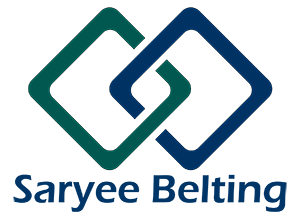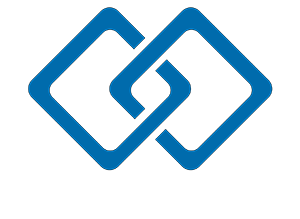Lehr Belts
HOME / PRODUCTS / Metal Conveyor Belts / Lehr Belts
Lehr Belts Wire Mesh Conveyor Belts for Glass Annealing
A Lehr Belt is a type of conveyor belt specifically designed for use in the glass industry, particularly in the annealing and decorating processes of glass container manufacturing. It plays a critical role in conveying glass products through the annealing lehr, where they undergo controlled cooling to relieve internal stresses and improve strength.
Saryee Belting has specialized in the design and production of premium-grade lehr conveyor belts for over 30 years., renowned globally for their application in annealing and decorating glass containers.
Offering versatility, all our lehr belts can be customized with either flat or round wire profiles, catering to a wide range of operational needs. Additionally, our belts are available in widths exceeding 5 meters, providing comprehensive solutions for various industrial applications.
Specification
Our Lehr Belts are meticulously crafted to deliver optimal performance and longevity. Each belt comprises a carefully engineered structure designed to withstand the rigors of glass production environments. We offer a range of wire selections to meet diverse operational requirements, including flat or round wire profiles.
In terms of raw material selection, we spare no expense, utilizing only the highest quality materials such as chrome molybdenum, 430 stainless steel, and 304 stainless steel. This ensures exceptional durability and reliability, even in the most demanding conditions.
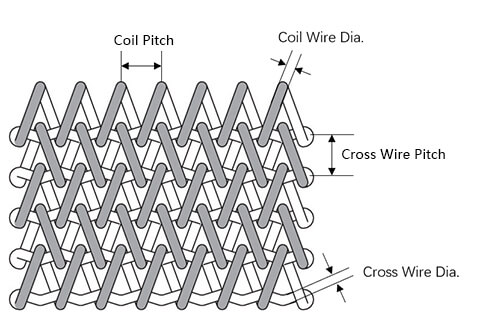

| Material | Carbon Steel, 430 Stainless Steel, 304 Stainless Steel, 314 Stainless Steel, Inconel® 601 |
| Coil wire diameter | Round wire: 1 to 4 mm Flat wire: 1.2 x 0.8 mm to 4 x 2 mm |
| Cross Wire diameter | 1.5 to 5 mm |
| Cross wire pitch | 6.5 to 40 mm |
| Coil wire pitch | 3 to 33 mm |
| Belt width | 35 mm to 5000 mm |
| Operating temperature | Carbon steel: 538°C Stainless steel: 1120°C Inconel® 601: 1200°C |
Belt Types
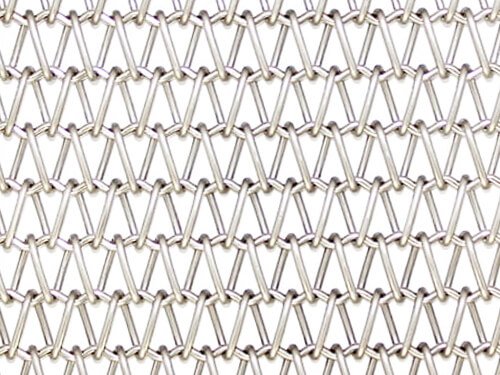

Round Wire Spirals Lehr Belts
Round wire spirals Lehr belts offer versatility in terms of configuration options, including wire gauge and pitch, allowing for customization to meet specific production requirements.
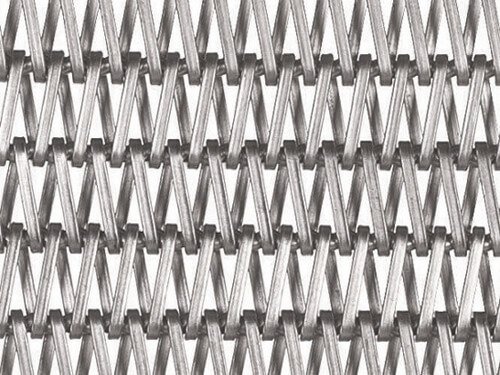

Flattened Wire Spirals Lehr Belts
The flattened wire spirals provide greater contact area with the glass containers, contributing to improved product stability during transportation.
Edge Availability
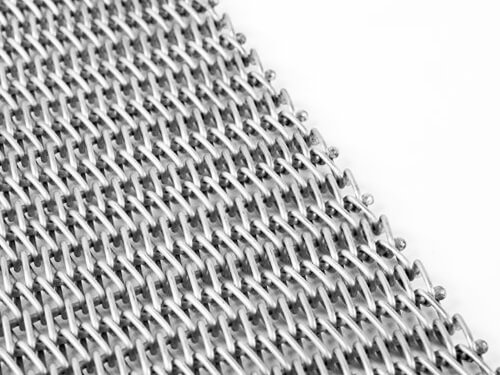

Lehr Belts with Welded Edge
The most common and cost-effective edge finish. Welding both the coil and crimp wires eliminates cut wire ends.
Methods of Drive
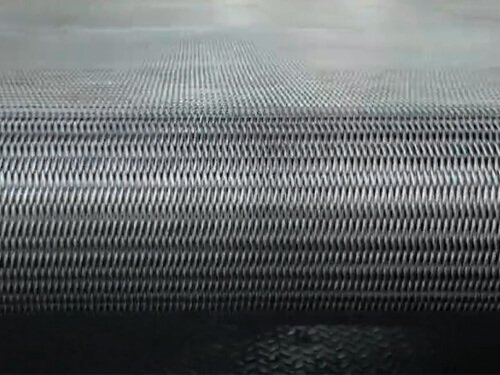

Friction Driven Lehr Belt
The predominant form of drive lehr belt in glass manufacturing is the plain steel parallel roller system. This system operates by utilizing frictional contact between the belt and rollers to facilitate belt drive.In this system, the lehr belt is supported and guided by parallel steel rollers, which are positioned along the length of the conveyor. The belt makes direct contact with these rollers, and the friction generated between them enables the transfer of motion from the rollers to the belt, thereby driving the conveyor.
Material Availability
Lehr Belts are usually made in the highest quality materials – including chrome steel, stainless steel and other materials that are available on request, the widely used specifications being:
- Cr 3% steel
- Cr 5% steel
- 304 stainless steel
- 310s stainless steel
- 314 stainless steel
- 316L stainless steel
- 321 stainless steel
- 430 stainless steel
- Type 304: Widely utilized for temperatures up to approximately 750ºC, Type 304 Stainless Steel is favored for its versatility and is commonly employed in Decorating Lehrs. It offers excellent corrosion resistance and is suitable for various industrial applications.
- Type 321: Type 321 Stainless Steel contains a small quantity of titanium, which stabilizes it against Sigma Phase Embrittlement, making it suitable for slightly higher temperatures, up to approximately 850ºC. This makes it a popular choice for applications requiring elevated temperature resistance, such as certain Decorating Lehrs.
- Type 430: Increasingly used as a replacement for 3% Chrome Molybdenum in Annealing Lehrs, Type 430 Stainless Steel boasts a high Chromium content, providing excellent anti-corrosive properties. However, due to its lack of Nickel, it is only suitable for temperatures up to a maximum of 650ºC.
- Superior Durability
Saryee Belting’s Lehr Belts are engineered to provide extended service life, minimizing downtime and maximizing productivity.
- Optimized Performance
With features like a smooth conveying surface, minimal belt stretch, and excellent tracking, our Lehr Belts ensure consistent and efficient operation.
- Customization Options
We offer Lehr Belts in various widths and wire profiles, allowing for tailored solutions to suit specific application requirements.
- Expert Engineering
Our belts undergo stringent quality checks at each stage of production, guaranteeing unparalleled quality and reliability.
Saryee Belting’s Lehr Belts find extensive application in the glass industry, serving as essential components in annealing and decorating lehrs. Their robust construction and superior performance make them ideal for both new unit installations and replacement projects. Whether you’re producing glass containers for beverages, cosmetics, or pharmaceuticals, our Lehr Belts ensure smooth and efficient conveying, contributing to the overall success of your operations.
